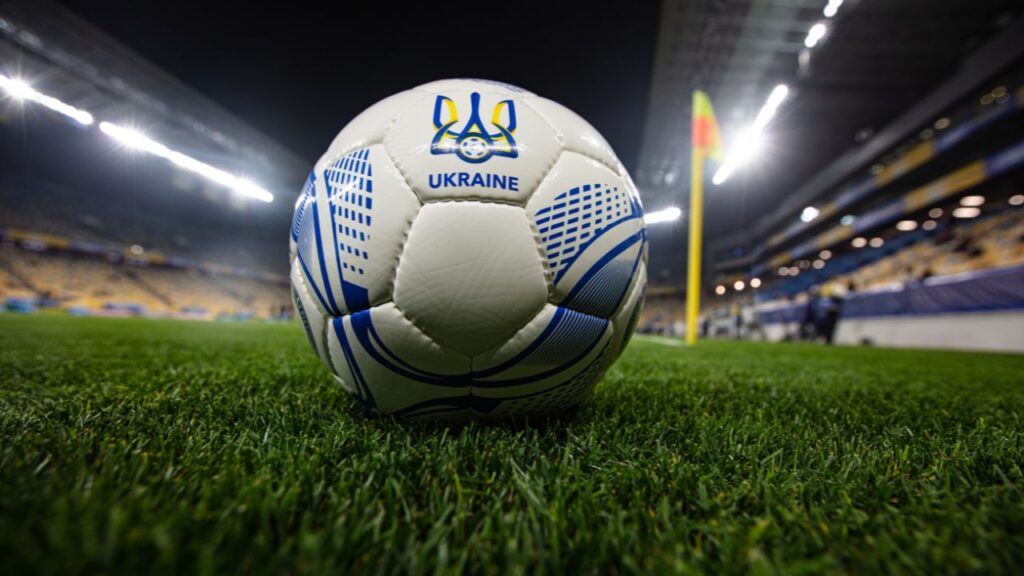Boost your betting experience and get up to $200 bonus right now!
Manchester United’s rollercoaster ride through the 2024/25 Premier League season has left fans gripping their seats with a mix of awe and anxiety. The Red Devils continue to oscillate between moments of sheer brilliance and patches of worrying instability, sparking debates over who will ultimately guide this historic club back to consistent greatness. From commanding victories like the thrilling 5-2 demolition of Leicester at Old Trafford to puzzling defeats such as the 2-1 loss to West Ham, inconsistency has become the defining narrative around this squad. With Erik ten Hag orchestrating a tactical chess game amid fluctuating player performances, questions loom large: can the team find a reliable spine? Is leadership emerging from within, or does Manchester United need a new hero to rally the troops? As the battle for Champions League qualification intensifies, every decision weighs heavily on a fanbase yearning for stability. This article digs deep into the causes of uneven form, the mental landscape behind the scenes, and the potent blend of strategy and leadership that could realign the Red Devils toward their rightful place atop English football.

Sommaire
ToggleUnderstanding Manchester United’s Premier League inconsistency under Erik ten Hag
The saga of Manchester United’s inconsistent form begins with an unsettled squad dynamic. Despite flashes of dominance, the Red Devils often seem unable to turn momentum into sustained success. Key to this erratic pattern is manager Erik ten Hag’s frequent rotation and tactical tinkering in search of the right formula.
Several factors fuel this unpredictability:
- Frequent lineup changes: Ten Hag’s experiments with player combinations mean that cohesion suffers. For example, the high-octane lineup featuring Bruno Fernandes, Marcus Rashford, and Casemiro produced electric football in their 5-2 rout of Leicester, where United controlled possession and created multitude of chances. Yet, when less settled lineups come into play—as seen with the inclusion of Christian Eriksen, Alejandro Garnacho, and Joshua Zirkzee in the West Ham fixture—the team exhibited disjointed rhythms and defensive lapses.
- Tactical fluidity without an anchor: While adaptability is a strength, the lack of consistent tactical identity blunts effectiveness. Against Leicester, possession-based dominance painted a clear picture of offensive ambition; opposite that, the West Ham game exposed an inconsistent defensive setup and vulnerable counter-attack strategies.
- Shifts in individual performances: The collective depends heavily on individuals like Bruno Fernandes and Marcus Rashford delivering memorable performances on demand. Fernandes’ long-range thunderbolt showcased his genius, yet he struggled to impose himself in more challenging matches. Such swings highlight a gap in reliability at critical moments.
- Mental resilience gaps: Performances have been punctuated by lapses in focus and composure under pressure. The inability to maintain nerves during decisive stretches reveals a psychological fragility that compounds physical inconsistency.
Examining the statistics reinforces these themes. During matches where the squad remained stable and tactics clear, Manchester United averaged 2.4 goals per game and held possession above 60%. Contrarily, fluctuating lineups dropped this efficiency severely, with 1.1 goals and near 50% possession. These disparities illustrate the direct correlation between consistency in selection and performance outcomes.
Bruno Fernandes and Casemiro’s ability to anchor midfield while Rashford’s pace breaches defenses has proven critical. Yet, the challenge remains: how to replicate such high-level chemistry week in, week out against diverse Premier League opposition? Stability appears to be the rare luxury in this evolving United squad.
| Match | Lineup Stability | Goals Scored | Possession % | Result |
|---|---|---|---|---|
| vs Leicester (5-2) | High (Fernandes, Rashford, Casemiro) | 5 | 62% | Win |
| vs West Ham (1-2) | Low (Eriksen, Garnacho, Zirkzee) | 1 | 48% | Loss |
| vs Bournemouth (0-3) | Medium | 0 | 54% | Loss |
| vs Luton (1-0) | High | 1 | 60% | Win |
While Erik ten Hag’s goal to find an optimal squad formula remains audible, the growing urgency to stabilize the roster cannot be overstated. Fixing this flaw may be the first step toward a relentless challenge for the Premier League crown, signposted by an approach that balances fluidity with structure — a lesson mastered by rivals in English football and beyond. For insights into how other clubs cultivate tactical consistency, visit Arsenal’s defensive patterns in 2025.
Leadership crisis and player performances: Who can steer Manchester United’s revival?
Leadership within Manchester United’s dressing room has sparked endless discussion this season. The quest for a figure who embodies the clubs’ fighting spirit and can shoulder the pressure of guiding the Red Devils through choppy waters is paramount. While Manchester United boasts names like Bruno Fernandes, Casemiro, and emerging talents, sustaining a leader’s influence week after week remains problematic.
Leadership here transcends captaincy; it demands visible consistency, empowerment of teammates, and a hunger for victory that ignites collective belief. Consider these leadership facets:
- On-pitch longevity and influence: Veterans such as Bruno Fernandes and Cristiano Ronaldo bring experience and charisma, but their inconsistency sometimes leaves gaps in leadership. Fernandes’ performances often shine brightly, but his occasional low-impact games contribute to a wavering leadership presence, creating uncertainty.
- Mentorship of younger players: Emerging stars like Alejandro Garnacho and Anthony Martial need guidance adapting to the intensity and scrutiny at Old Trafford. The gap between star veterans and young talents should be bridged through strategic mentorship, fostering readiness for responsibility.
- Psychological resilience under pressure: The weight of Manchester United’s historical success is enormous. Leaders must cushion the impact of setbacks and help the team bounce back swiftly, instilling a ‘never say die’ mentality on the pitch.
Encouragingly, Casemiro’s arrival brought leadership qualities that redefined midfield stability. His battle-hardiness and calm under pressure provide an anchor for the squad. However, his own struggles with sleepless nights due to the club’s inconsistent form reveal just how taxing the environment has become.
Leadership challenges reflect widely in recent performances. For example, the inability to rally after conceding early goals against Bournemouth spotlighted a lack of unified response, raising concerns over who might take charge in critical moments.
Building that leadership backbone will require:
- Fostering a shared vision: All squad members understanding and committing to a clear goal.
- Empowering emerging leaders: Creating space for Garnacho and others to grow into demanding roles.
- Off-the-field cohesion: Strengthening locker room relationships through team-building.
This leadership dimension echoes the importance seen in clubs worldwide, where influential players spark transformation — whether through tactical mastery, as seen in Barcelona’s evolving midfield (more at rktfootball.com), or through resilience exemplified by teams like Shakhtar Donetsk (read more).
The mental game: Psychological impact of inconsistency on Manchester United players and fans
The emotional and psychological toll of Manchester United’s erratic performances cannot be ignored. For a club steeped in trophy-laden history and fervent fan expectation, inconsistency undermines confidence and fuels anxieties on multiple fronts.
Here’s how inconsistency plays out psychologically:
- Players under pressure: Constant shifts in form create self-doubt and hesitation. Players feel the immense burden to live up to Old Trafford’s legacy after seasons filled with turbulent results. This dilemma is more than tactical—it’s emotional.
- Fan disillusionment: Red Devils supporters, spoiled by years of dominance, face an exhausting pendulum between euphoric wins and baffling losses. Their faith is tested regularly, and the rollercoaster heightens frustration.
- Media scrutiny: English football’s global spotlight magnifies every mistake or underperformance. This intense coverage adds layers of stress upon players and coaching staff.
Experts agree mental resilience will determine the club’s redemption arc. Techniques to cultivate this include:
- Professional sports psychology intervention: Helping players navigate pressure and reset focus after setbacks.
- Team-building and camaraderie exercises: Encouraging trust and collective strength.
- Establishing clear leadership channels: Preventing confusion in high-pressure moments with vocal and strategic guidance.
These psychological reinforcements mirror practices at cutting-edge football programs around the world, whether in MLS’s LAFC’s forward drive (LAF Cup status) or top European academies nurturing stars early (must-read).
| Psychological Impact | On Players | On Fans |
|---|---|---|
| Pressure and Expectations | Increased anxiety, self-doubt | Heightened frustration, disillusionment |
| Media Scrutiny | Magnified stress, performance fears | Intense emotional investment |
| Performance Variability | Confidence fluctuations | Unstable hope and mood swings |

Strategies to restore Manchester United’s consistency and reclaim the Premier League crown
Turning around inconsistency demands a multi-layered strategy that addresses tactical, physical, and mental dimensions holistically. The Red Devils’ pathway back to glory could rely on several key pillars:
- Establish a tactical identity: Erik ten Hag must hone a clear, stable playing style that balances attack and defense. The team needs a strategic framework adaptable across the unpredictable challenges in the Premier League and Champions League campaigns.
- Strengthen core lineup: Prioritizing a preferred starting eleven fosters cohesion and trust. This approach must balance youth and experience effectively.
- Improve mental toughness: Integrating sports psychologists and developing resilience training can help the squad overcome psychological hurdles.
- Expand leadership roles: Players like Bruno Fernandes, Casemiro, and Marcus Rashford need amplified responsibilities on and off the pitch, setting a standard for professionalism and resistance to pressure.
- Learn from top competitors: Study and adapt trends from dominant clubs, exemplified by Manchester City’s disciplined tactical execution or Liverpool’s intense team spirit.
This comprehensive approach aligns with similar turnarounds seen in football’s elite, where clubs reclaimed titles through diligence in structure and mindset. The Premier League title race continues heating up—explore in-depth coverage here, while United’s rebuilding journey is tracked closely at rktfootball.com.
| Key Strategy | Expected Impact | Examples |
|---|---|---|
| Tactical Identity | Improved cohesion, consistent match control | Man City’s possession dominance |
| Core Lineup Stability | Better understanding, reduced errors | Liverpool’s trusted starting XI |
| Mental Resilience Training | Enhanced focus under pressure | Top European clubs’ psychological programs |
| Leadership Development | Strong locker room influence | Casemiro’s midfield command at United |
Who will lead Manchester United back to glory? Emerging stars or seasoned veterans?
The final piece of Manchester United’s puzzle lies in identifying the figure or figures ready to carry the weight of expectations as the club seeks a return to dominance. Is the mantle best worn by experienced veterans like Cristiano Ronaldo, Bruno Fernandes, and Casemiro, or is the future in the hands of rising talents like Alejandro Garnacho and Anthony Martial?
Examining the options:
- Seasoned veterans: Players like Fernandes and Casemiro have shown flashes of captaincy-level leadership. Their influence in shaping game tempo and rallying teammates has been crucial in wins but inconsistent in tough matches. Cristiano Ronaldo’s legendary status brings gravitas, but his involvement has diminished following recent transitions, highlighting a gap the club must fill.
- Emerging talent: Garnacho and Martial represent the youthful energy and hunger pivotal for the club’s future. Their potential is boundless but requires nurturing within a stable environment and a well-defined tactical role to thrive consistently.
- Collective leadership model: Rather than relying solely on individual stars, the ideal scenario is a shared leadership culture. This emphasizes communication, accountability, and mutual support—qualities seen in successful teams worldwide, from Porto’s Champions League runs to Flamengo’s Copa Libertadores triumphs (read more, more here).
The outcome depends heavily on coaching guidance, player development, and the will to embrace responsibility. If Manchester United align these elements correctly, a new era of leadership could emerge—one that blends history, youthful vigor, and tactical acumen to reclaim their throne in English football.
Join today and grab up to $200 bonus for your next bets!
Content assisted by AI. This article was created in whole or in part with the help of artificial intelligence.


